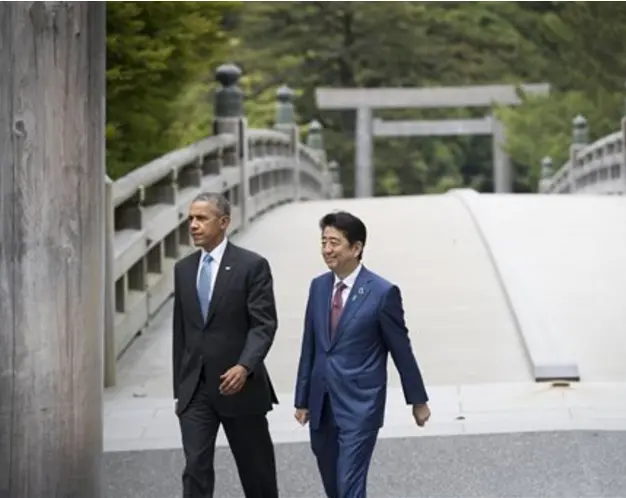As signs abound that Indonesia’s current administration harbors little affection for Japan and amid China’s economic assertiveness, another bilateral meeting between Indonesia and Japan is expected to set the tone for more cordial relations.
The meeting is being held on the heels of fresh concern from Tokyo over Jakarta’s unclear stance on a US$1.5 billion seaport project and recent policy flop over a $22 billion gas project involving Japan’s Inpex Corp.
These hurdles have emerged at a time when Japan, Indonesia’s biggest creditor and one of its biggest investors and export customers, may still be struggling to swallow the bitter pill of the treatment it received last year when it lost out to China in a contest to secure Indonesia’s first high-speed train project.
But as the two countries maintain a profound economic interdependency, Tokyo cannot afford to allow these impediments to undermine its relationship with Jakarta, particularly when China is already knocking on Indonesia’s door offering more packages of cheap loans and assistance.
Against this background, President Joko “Jokowi” Widodo is set to meet Japan’s Prime Minister Shinzo Abe, their fourth bilateral meeting since Jokowi took office 18 months ago, on the sidelines of the G7 summit of seven leading industrialized nations in the coastal area of IseShima on Friday.
While Foreign Minister Retno Marsudi remains tight-lipped on the items for discussion in the bilateral meeting with Japan, Cabinet Secretary Pramono Anung has provided a glimpse into the list of issues that are likely to be raised.
“Japan will bring up two projects that need Indonesia’s attention. One is on the Patimban seaport project and the other on developing the Jakarta-Surabaya [located in East Java and Indonesia’s second-biggest city] railway,” said Pramono.
“These two issues will be raised during the bilateral meeting and we have prepared the responses.”
The Patimban deep-sea port project in Subang, West Java, is aimed at supporting the flow of goods to and from industrial estates in regencies east of Jakarta that are home to automotive, electronics, machinery and IT component manufacturers.
Japan has offered cheap loans to finance the project under a similar scheme to that which it provided to finance the $1 billion Jakarta Mass Rapid Transportation ( MRT ) rail system.
However, Indonesian officials have sent out contradictory messages, indicating Japan is not a preferred bidder as Belgium, the Netherlands and the United Arab Emirates are also interested in joining the fray.
The meeting between Jokowi and Abe is expected to provide certainty for Japan regarding the project, considered the “next big thing” for Japan after losing the high-speed train to China.
Nevertheless, Japan has not entirely lost its appetite for Indonesia’s rail network as it has proposed providing cheap loans to revitalize the Jakarta-Surabaya route in a bid to double train speeds.
The loan will be used to construct underpass and overpass infrastructure to eliminate the disruption of train operations at railway crossings by motor vehicles.
Aside from these two issues, Pramono was not sure whether Japan would also raise the fiasco surrounding Inpex’s investment in the Masela gas block, which appeared to indicate contempt for fair play and transparency.
Inpex, at risk of losing the $1.6 billion it spent on gas exploration in the block, was forced by Jokowi in March to alter its plan to extract gas in Maluku using offshore facilities and build onshore instead. The President provided little explanation for his decision.
The move went against an agreement between Inpex and energy authorities for an offshore plant, setting a bad precedent for the investment climate.
“Japan is traditionally a loyal investor in Indonesia. The President should explain his rationale behind the Masela block snafu in a bid to restore investor confidence,” said Hikmahanto Juwana, a professor of international law at University of Indonesia.
Seko, speaking during the first day of the two-day summit in central Japan, said Abe told G7 counterparts that Pyongyang ’s development of nuclear technology and ballistic missiles posed a threat to international peace, including in Europe.
The G7 groups Canada, France, Germany, Italy, Japan, the UK and the US.
The global economy topped the agenda earlier in the day, when G7 leaders voiced concern about emerging economies and Abe made a pointed comparison to the 2008 global financial crisis. Not all his G7 partners appeared to agree.
The G7 leaders did agree on the need for flexible spending to spur world growth but the timing and amount depended on each country, Seko told reporters, adding that some countries saw no need for such spending. Britain and Germany have been resisting calls for fiscal stimulus.
“G7 leaders voiced the view that emerging economies are in a severe situation, although there were views that the current economic situation is not a crisis,” Seko said.
Abe presented data showing global commodity prices fell 55 percent from June 2014 to January 2016, the same margin as from July 2008 to February 2009, after the Lehman collapse.
(THE JAKARTA POST)
 简体中文
简体中文



